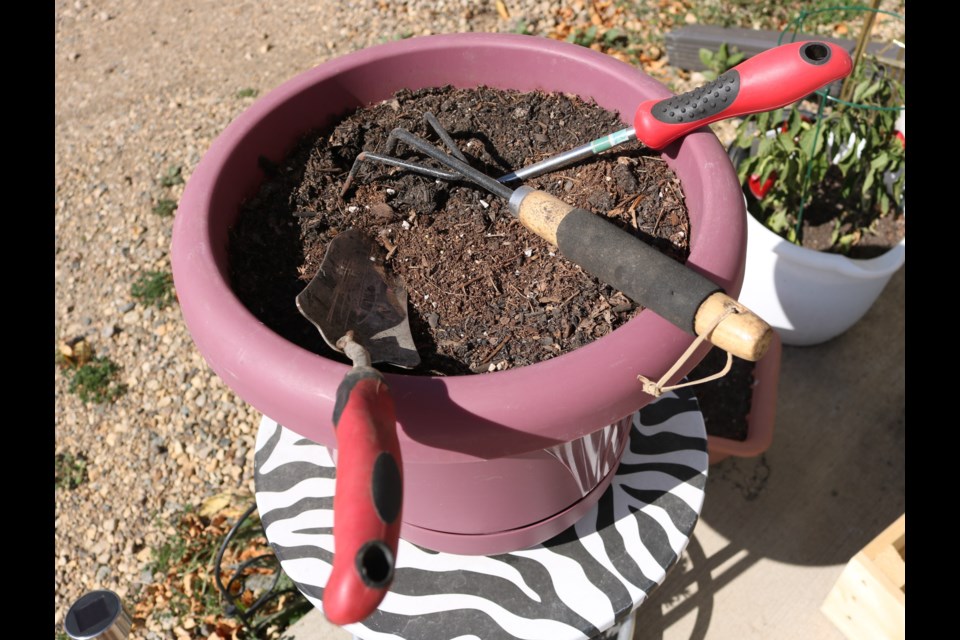YORKTON - The Yorkton hort society began the new season with a fascinating field trip as part of our first meeting!
Thank you to Lyndon from the City of Yorkton who gave us an informative and very interesting tour of the City’s composting program, as well as several other amazing features at the Yorkton landfill site.
The many innovations and initiatives being done by the City are truly remarkable and forward thinking; those involved in these enterprises should be very proud of the fact that so much is being done with consideration for the environment, bringing positive results for years to come.
What a great way to start off the year, learning so much about composting on a grand scale! Thank you, Lyndon, for taking the time to meet with us, and share your knowledge and enthusiasm!
Seeing the compost project showed us that composting can be done on a large scale for large projects; just as we can do it on a much smaller scale in our home gardens. At our meeting following our field trip, there was a lot of enthusiastic conversation about the various methods of composting. One of our members talked about a kind of composting called “trench composting” which is an easy way to get started. If you think that composting can only be accomplished with a full-blown, official compost bin, this method of composting will come as a happy surprise!
It’s very complicated. You dig a trench, about six or seven inches deep, drop in your produce scraps, and cover them with soil. Sounds difficult, doesn’t it.
But that’s it! So, if you have potato peels, carrot peels, eggshells, apple cores, banana peels, coffee grounds, wilted lettuce leaves…just set them down in the trench and cover. Don’t make them into a very thick layer, spread them at an even thickness. Be sure they are covered with at least five or so inches of soil to really get the composting process started. But remember: no meat products of any kind of dairy items.
You can start doing this trench composting even now before the soil begins to freeze. A question that came up is: what about when we are tilling our soil in the spring? Will we run into the compost trench?
The answer from several gardeners in-the-know was that if you dig the trench about six or seven inches deep, the composting can continue on undisturbed by the tilling above it. And by then, some of it will be well on its way to compost already.
The key to a successful garden begins with good soil, and there is nothing better for improving our soil than compost. It provides valuable nutrients, loosens and aerates the soil, helps to improve drainage, and improves the quality of our soil. It’s “brown gold”, and our gardens will be better for our efforts!
In addition to sending our thanks to Lyndon, we’d also like to thank Cole at Access for the great coverage of our flower show and the interview with some of our members to talk about the gardening year; and as always, a big thank-you to our friends at Yorkton This Week for their ongoing support of our group and activities. A bouquet of thanks to you all!
The next meeting of the Yorkton and District Horticultural Society will be held on Wednesday, October 19 at the Godfrey Dean, ground floor meeting room. Please note the change of location for this occasion only! The October meeting is a ‘members only’ meeting. Visit us at www.yorktonhort.ca for details about group activities and have a great week!






